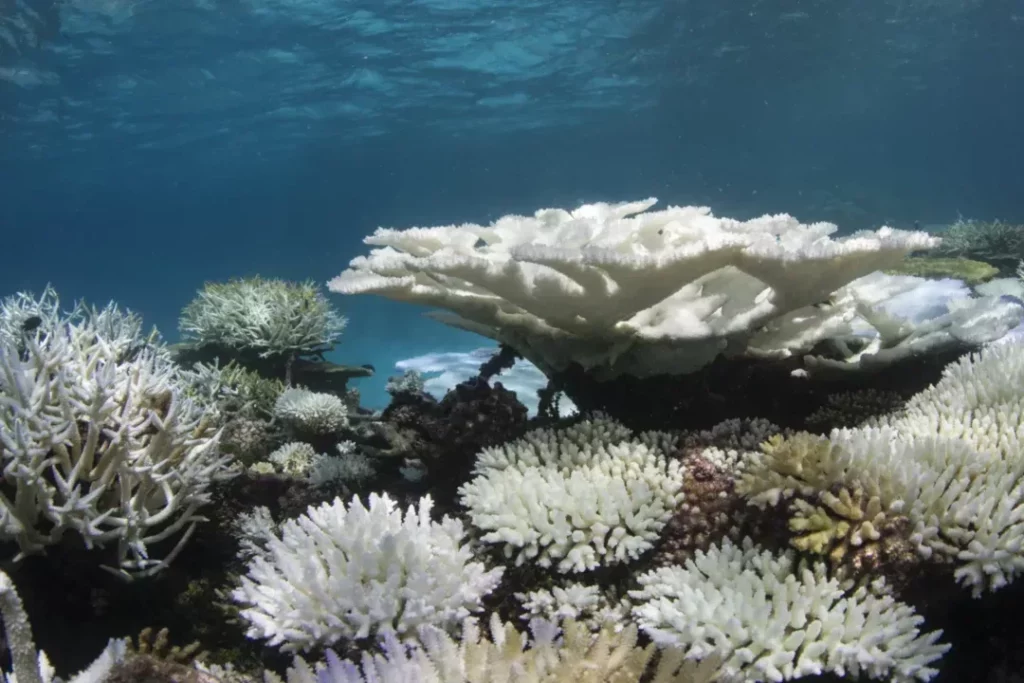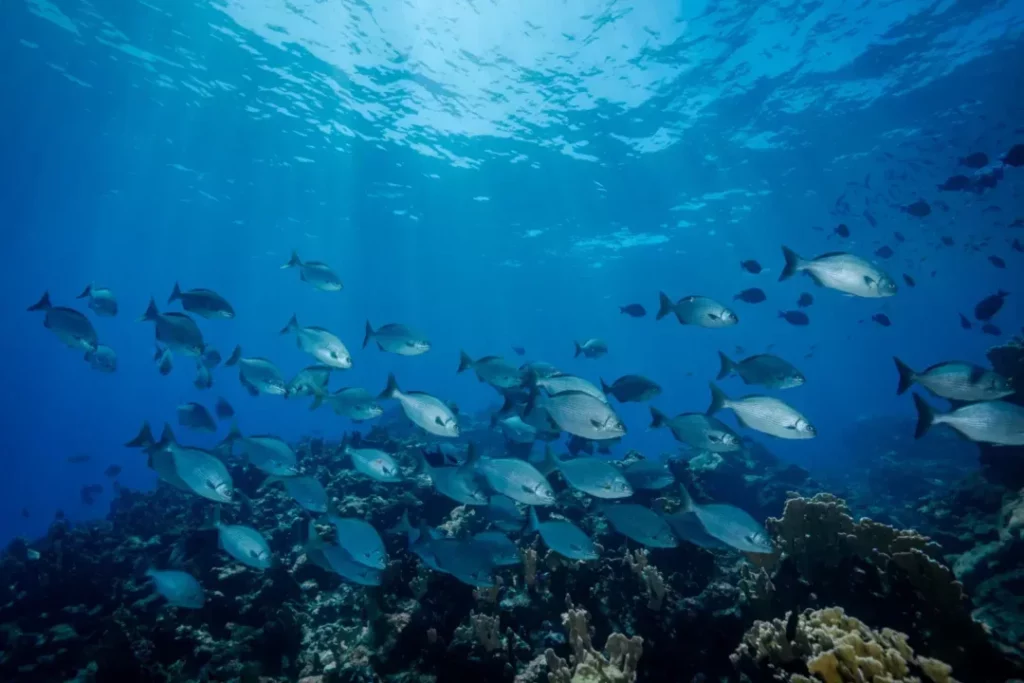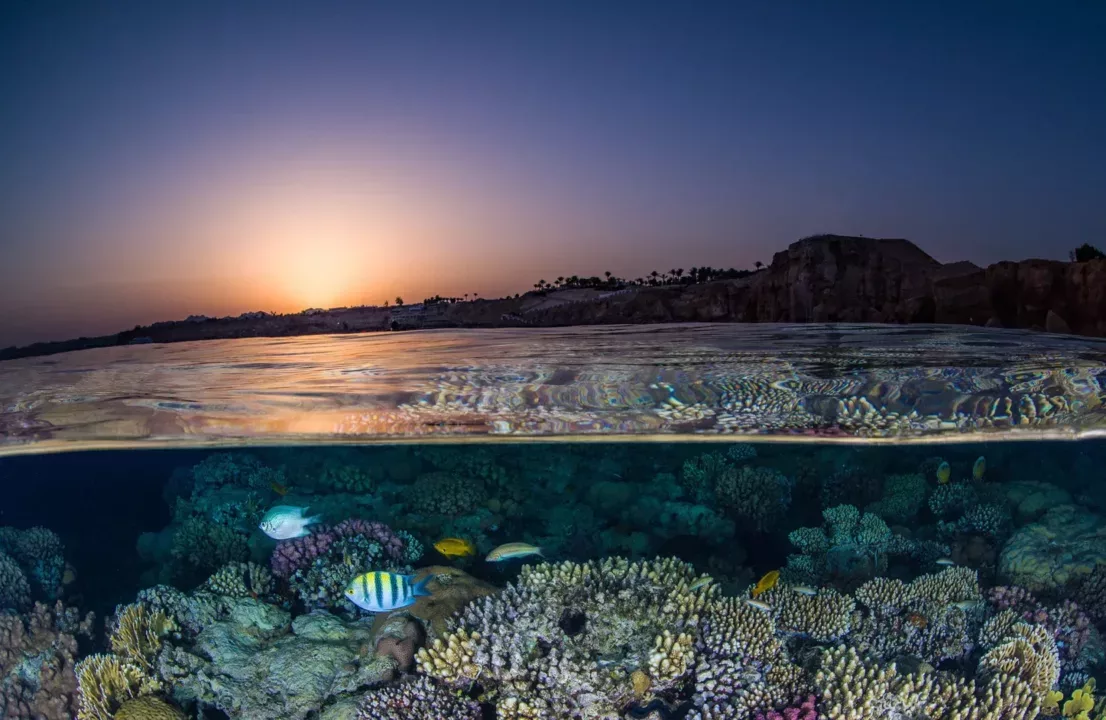Founded by 11 nations, The Global Coral R&D Accelerator Platform will advance the next generation of science and technology needed to secure a future for coral reefs in the face of climate change and other pressures
The inaugural meeting of the Global Coral R&D Accelerator Platform’s governing body took place on 30 June, 2020, thereby bringing this initiative to life after a foundation phase involving 16 nations and the EU. Dr. Osama Faqeeha, Deputy Minister for Environment at the Saudi Ministry of Environment Water and Agriculture (MEWA), was elected as inaugural chair of the Initiative Governing Committee, and Ms. Jennifer Koss, Director of the Coral Reef Conservation Program at the National Oceanic & Atmospheric Administration of the US was elected as vice chair.
Aware that the window of time to save coral reefs is narrow and rapidly closing and that no single nation has the capacity to reverse this trend, the G20 leaders announced the creation of the Global Coral R&D Accelerator Platform to improve coral conservation and restoration outcomes around the world with a suite of superior science and technology approaches.
In 2020, as the world was struggling with the pandemic, another crisis was being addressed under the auspices of the Saudi presidency of the G20. Coral reefs are facing grim prospects due to climate change impacts, improper fishing practices, pollution, coastal urban development and other human induced impacts. But it is not only tropical coral reefs that are in danger, deep-water corals, able to grow in cold water at depths in excess of 500 m, where little or no light reaches, have experienced major losses across the world – often even before their presence was detected in some locations – and are severely threatened by climate change as well.
Coral reefs, both tropical and cold-water, provide essential habitats for biodiversity, and are home to one in every four marine species at some point in their life cycle. They provide key benefits to human societies, as well, by buffering vulnerable shorelines from storms and cyclones, supporting fisheries and, subsequently, the livelihoods of more than 500 million people, and stimulating the economy through tourism and related recreational activities. Yet due to cumulative pressures, including pollution, unsustainable fishing practices and physical damage, about half of the extent of global coral reefs has been lost. In recent years, climate change has emerged as the major threat, accelerating coral loss.
Coral reefs are in danger around the world, but the prospect to see coral reefs lost from the ocean within one human generation was not one that G20 leaders were prepared to consider.

The Global Coral R&D Accelerator Platform will advance the next generation of science and technology needed to secure a future for coral reefs in the face of climate change and other pressures. To this end, the research program will engage a gender-balanced, trans-disciplinary global community of scientists, coastal managers, technologists and innovators, guided by a strategic plan and goals proposed by the Platform’s Scientific and Advisory Committee.
“The Kingdom of Saudi Arabia is custodian to some of the healthiest coral reefs, in the Red Sea, and is committed with their conservation and restoration. We welcome the Global Coral R&D Accelerator Platform as a much needed international collaborative effort to secure a future for coral reefs. The advent of a vaccine to protect from COVID-19 in record time shows the power of global scientific collaboration to address a global challenge. We are hoping that strong and effective global scientific collaboration will also help resolve another global threat, the extirpation of coral reefs from the world’s oceans”, Dr. Osama Faqeeha, Chair of the Global Coral R&D Accelerator Platform stated.
“ The United States was pleased to see the Kingdom of Saudi Arabia elevate the critical need for greater resources and more innovative technologies for global coral conservation during its presidency of the last G20”, said Jennifer Koss, Vice-Chair of the Global Coral R&D Accelerator Platform. “The Platform offers a unique opportunity to gather the world’s scientific and coral management experts to complement other existing coral research and conservation efforts during this time when we are determining the future of our coral reefs, the very foundation of myriad ecosystem services we cannot afford to lose”.
The Platform’s role is multifaceted. It will connect existing national, regional and international R&D programs and engage the private sector in supporting these efforts; provide advanced R&D training to scientists—from developed to least developed countries; and facilitate access to scientific information as well as research and testing facilities around the globe. New technologies and science generated will be made available to support on-the-ground efforts to conserve and restore coral reefs.

The Platform appointed King Abdullah University of Science and Technology (KAUST), as Platform Central Node (PCN), managing the program, in recognition of its track record on coral reef research, capacity for global research collaboration, management of proposals submitted from institutions throughout the world, state-of-the-art laboratories for coral reef research, and world class facilities for hosting international conferences and meetings. The University will support the PCN operations, at no cost to the G20, as an expression of its strong commitment to saving the world’s coral ecosystems.
KAUST President Tony Chan said: “From its founding, research on Red Sea coral reefs has been one of KAUST’s emphasis and strengths. We are thus motivated and inspired by this global effort, and have offered to do our part by serving as the Platform’s Central Node. In this role, our objective is to ensure that needed resources, talent and ideas are efficiently funnelled toward demonstrable success in troubled coral ecosystems worldwide.”
KAUST Professor Carlos M. Duarte, appointed Executive Director (interim) of the platform urged, “We must act as custodians of our planet—for the health of our oceans, and for the sake of future generations.”


